What is your confrontation style?
Answer the following 10 questions as honestly as possible to determine your predominant confrontation style.
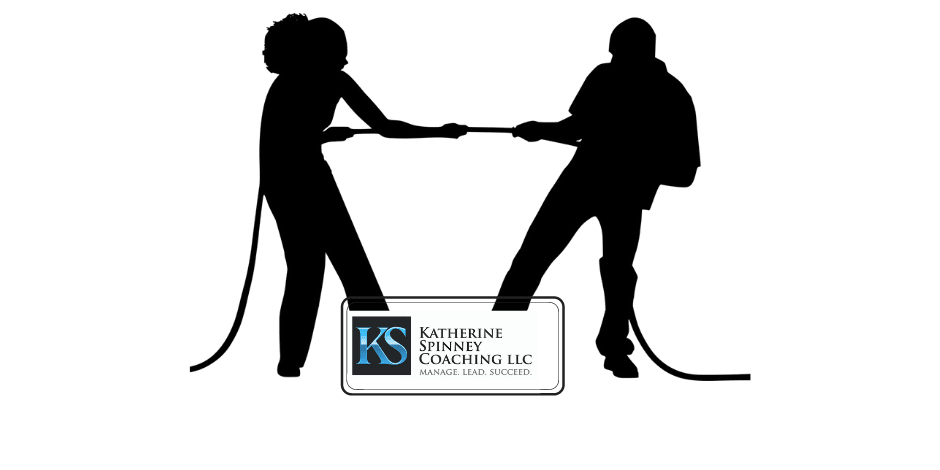
When I think about confronting someone, I feel
Focused and ready to prove my case
Anxious and avoid it at all costs
Comfortable and ready to find a mutually beneficial resolution
Motivated to keep the peace and do whatever will make the other person happy
Prepared to meet the other person halfway
When it comes to resolving conflict, I
Work with the other person to find a solution that benefits us both equally
Do everything I can to make sure the other person is happy
Strive to meet the other person halfway
Ignore it
Focus on proving why I'm right so I can get what I want
During my last conflict, my goal was to
To keep the peace
To win
To meet in the middle
To have us both win
To get it over with as quickly and painlessly as possible
My colleagues would describe me as
A pushover
Confrontational
Compromising
Solution-focused
Non-confrontational
You and a colleague have both booked the conference room for the same time slot. How do you handle it?
I let them have it
I explain why I should have it and bring my receipts
I avoid the conversation and hope it works itself out
I suggest they use it half the time and I use it half the time
I talk it through to find a solution that works best for both of us
You find out a colleague has been talking negatively about you behind your back. What do you do?
Nothing
Figure out a way to co-exist
Figure out what I did and apologize
Set up a time to talk it through so we both feel good about the resolution
Confront them immediately and tell them never to do it again
You and a co-worker you are close with are up for the same managerial promotion. What do you do?
Use some dirt on my colleague to position myself as the stronger candidate
Remove my name from consideration
Nothing
Talk with my colleague about the best way to move forward
Suggest to my colleague that we advocate for a co-manager role
A friend has not paid you back from a dinner you covered because they forgot their wallet. What would you do?
Forget about it
Ask if they can at least pay half and forget about the rest
Keep asking until I get it
See if they need money since they're obviously struggling
The next time I make plans with them ask if they can cover it to make up for last time.
Your boss still hasn't given you the raise they promised you 6 months ago. What do you do?
Go to HR with documentation and demand payment including for the past 6 months
Nothing
Talk with your boss and agree to forgo the past 6 months provided you receive the raise going forward
Talk with your boss and remind them how much you have done to earn the raise and how much you will continue to do to keep improving the team's outcomes
Talk with your boss and let them know you will continue to wait until they have time to get everything in place.
Your colleague dropped the ball and you got blamed for it. What do you do?
Nothing
Tell them they need to own up to it or I will tell our boss what happened
Let them know I will take the blame for them
Agree to take half the blame if they take the other half
Let them know I appreciate them and don't want to see them get in trouble and also don't want to take the fall. I would talk it through to figure out a solution that works best for both of us.
Competing
The competing style of confrontation is self-focused and seeks to be come out ahead at the end of the confrontation, often at the expense of the relationship. This style aims to control the outcome of the disagreement in order to win. This style is most effective when you are unconcerned with maintaining the relationship and instead are looking to reach the outcome that works best for you. This style can cause problems when you implement it with people you must continue to work with, damaging relationships along the way.
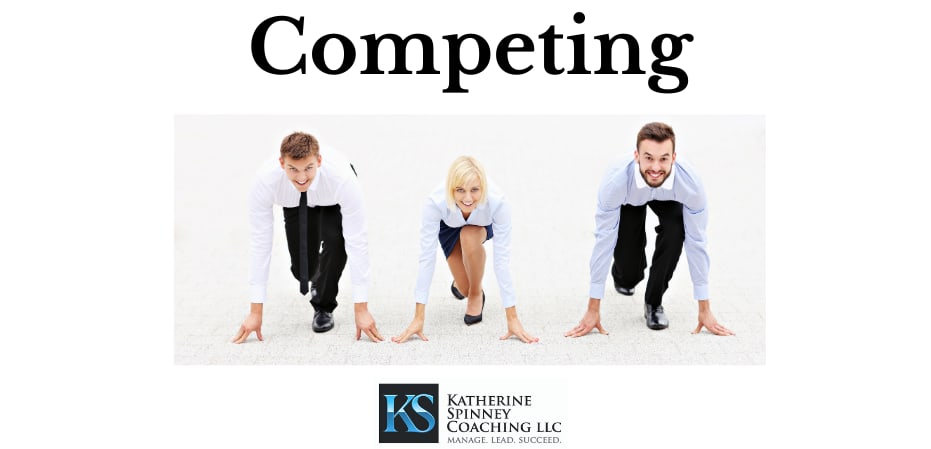
Avoiding
The avoiding style of confrontation seeks to ignore the problem in hopes that it will go away on its own. If the confrontation absolutely has to happen, this style will delay it as much as possible and get it over with as quickly as possible. This style is most effective when the situation is not that serious and will likely blow over. This style can cause problems when you are avoiding situations that must be addressed and will only get worse by not doing so.
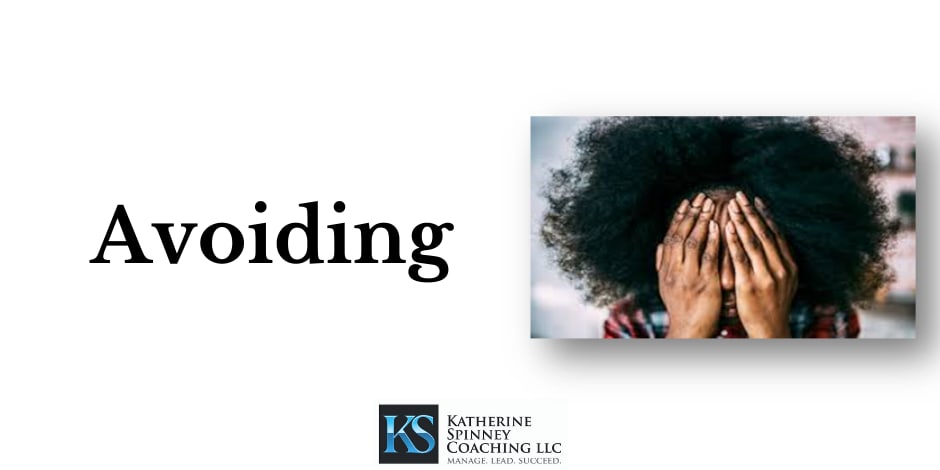
Accommodating
The accommodating style of confrontation seeks to preserve the relationship of the people involved. This style is less concerned with outcome and more concerned with keeping the peace. The priority is to maintain a positive relationship and generally involves conceding to what the other person wants to make that happen. This style is most effective when you are at fault and/or the preservation of the relationship is more important to you than the outcome. This style can cause problems if you are always giving up what you want causing you to be taken advantage of and even becoming resentful.
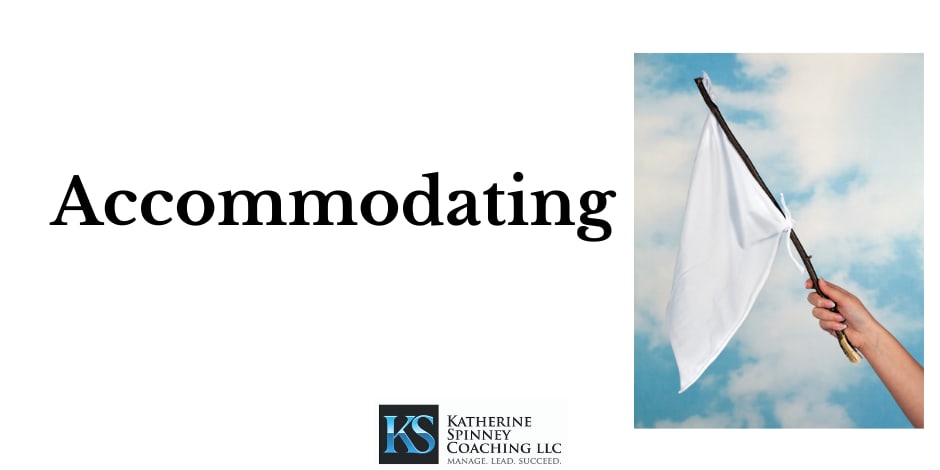
Compromising
The compromising style of confrontation aims to balance the outcome and the relationship. The goal is for both sides to give a little and take a little to feel a sense of satisfaction with the outcome. This style is most effective when you are unable to create a win-win and a decision needs to be made. This style causes problems when both parties are never really getting what they fully want and are always left feeling short-changed.
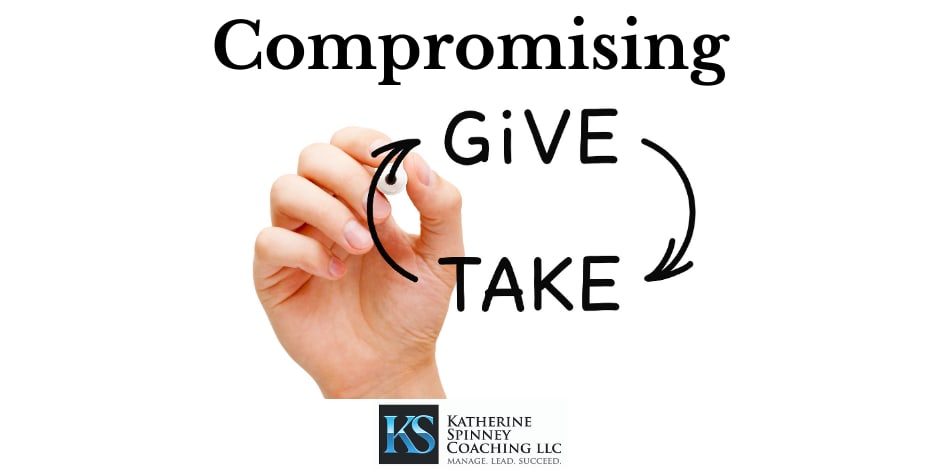
Collaborating
The collaborating style of confrontation seeks to preserve the relationship and arrive at a solution that leaves everyone feeling fully satisfied. This style seeks to meet all of the needs of all people involved in the confrontation. This style is most effective in most situations. This style can cause problems when the conflict is mostly one-sided or when there is not much time to arrive at a solution that will satisfy everyone equally.
